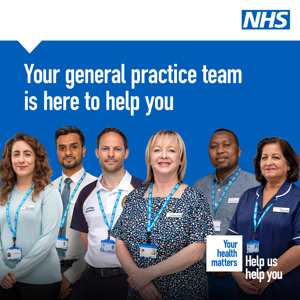GP practices

Anyone in England can register with a GP surgery to access NHS services. It's free to register.
You do not need proof of address or immigration status, ID or an NHS number.
Most GP practices offer online forms via their websites to make it even easier for you to get in touch.
GP practices have a range of health professionals who can help you depending on your situation, including a GP, nurse, clinical pharmacist or physiotherapist.
Primary Care Access Recovery Plan
NHS Cheshire and Merseyside's Primary Care Access Recovery Plan sets out our plan for improving access and making it easier and simpler for patients to access the care they need, and supporting GP practices to manage demand and capacity through a range of additional measures, such as employing more staff through the Additional Roles Reimbursement Scheme (ARRS).
Read our Primary Care Access Recovery Plan
You can watch the playlist below to learn more about the different health professionals working in general practice, which is expanding thanks to the Primary Care Access Recovery Plan and ARRS scheme.
Evening and weekend appointments
In response to patient feedback, across Cheshire and Merseyside GP practices are working together to offer patients evening and weekend appointments – that means you will be able to see a GP, nurse or other health professional at a time which is most convenient for you.
Learn more about GP appointments on the NHS website.
Working together
As much as 90% of healthcare is delivered in primary care settings, with primary care networks (PCN) – groups of GP practices working together – being key building blocks of the NHS Long Term Plan.
While GP practices have worked together in different ways over many years, the NHS Long Term Plan and Five-Year Framework for the GP contract (both published in 2019) put more structure around this way of working.
Each PCN appoints a local GP (or GPs) as their clinical director and covers a population of approximately 30-50,000 people.